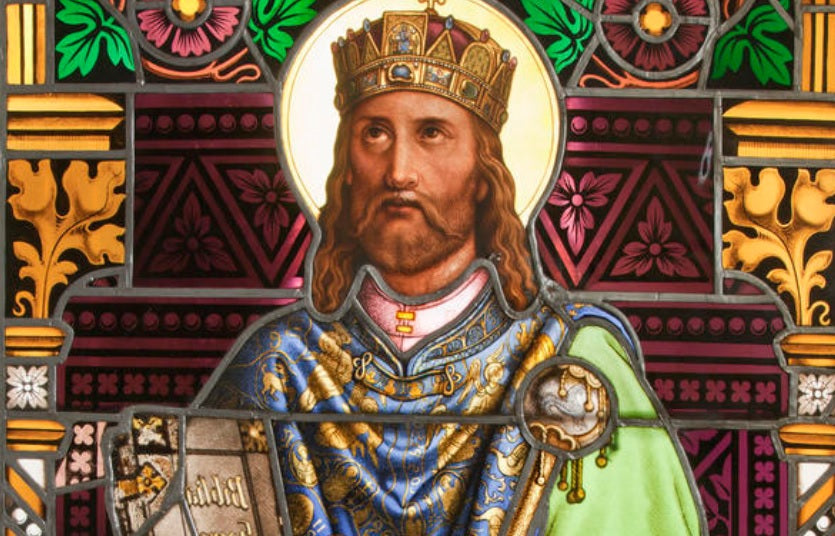
Saint Stephen: More Than Just a Saint, Hungary's Nation-Builder
|
|
Time to read 5 min
|
|
Time to read 5 min
Saint Stephen of Hungary stands as a towering figure in European history. Crowned the first king of Hungary in the year 1000, he is revered not only for his political achievements but also for his role in spreading Christianity and laying the foundation for the Hungarian state. This blog delves into the life and legacy of this remarkable figure, exploring his journey from pagan prince to Christian king, his efforts to unify his kingdom, and his enduring impact on Hungarian identity.
From Pagan Prince to Christian King: A Transformation Steeped in Power and Politics
Born Vajk sometime around 975 AD, Stephen was the son of Géza, the Grand Prince of the Magyars, a nomadic people who had settled in the Danube region in the ninth century. Hungary at this time was a land in flux, with pagan traditions deeply entrenched yet exposed to the influences of Christianity from neighboring regions.
Géza, recognizing the advantages of adopting Christianity for political and economic reasons, began a cautious embrace of the new faith. Stephen, raised with a foot in both worlds, fully converted to Christianity and took the name Stephen upon his baptism.
The Coronation: A Symbolic Moment and a Power Play
Stephen's ambitions extended beyond personal faith. He recognized the unifying power of Christianity and its potential to solidify his hold on power. With the support of Pope Sylvester II and the Holy Roman Emperor Otto III, Stephen was crowned King of Hungary on Christmas Day, 1000 AD.
The coronation was a pivotal moment. The crown, a magnificent piece of jewelry known as the Holy Crown of Hungary, became a symbol of not just Stephen's reign but of the legitimacy of the Hungarian monarchy for centuries to come.
Spreading the Faith: From Pagan Practices to Christian Foundations
Stephen's commitment to Christianity went beyond mere symbolism. He actively promoted the spread of the faith throughout his kingdom. He established churches and monasteries, invited missionaries, and instituted laws that favored Christianity and discouraged pagan customs.
This process of Christianization was not without its challenges. Stephen faced resistance from some of his pagan nobles, but he used a combination of diplomacy, force, and strategic marriages to consolidate his power and ensure the success of his religious reforms.
Building a Nation: Laws, Administration, and the Legacy of a Statesman
Stephen's legacy extends far beyond his religious reforms. He is also recognized as a skilled statesman who laid the groundwork for a strong Hungarian state. He established a system of laws, created a centralized administration, and fostered economic development.
A Legacy of Unity, Faith, and National Identity
Stephen's reign marked a turning point in Hungarian history. He unified a previously fractured nation, established Christianity as the dominant religion, and laid the foundation for a strong and independent kingdom. He is revered as the "founder king" of Hungary, a figure who shaped the nation's identity and laid the groundwork for its future.
The Saintly King: Canonization and Enduring Veneration
Stephen's dedication to Christianity and his efforts to spread the faith earned him recognition as a saint after his death in 1038. He is a revered figure in Hungary, celebrated for his piety, statesmanship, and role in forging the nation's identity.
Beyond the Crown: Unveiling the Man Behind the Legacy
While Stephen's achievements as a king and Christian leader are undeniable, the details of his personal life remain somewhat obscure. Historical accounts portray him as a man of strong faith, intelligence, and political acumen. However, there is limited information about his relationships, motivations beyond political gain, and his inner thoughts and struggles.
The Enduring Questions: A Life Shrouded in Some Mystery
Despite his enduring legacy, some aspects of Stephen's life and reign remain open to debate. Historians continue to analyze the extent of popular resistance to his reforms, the motivations behind his political alliances, and the role of his wife, Gisela, sister of the Holy Roman Emperor, in his rise to power.
Saint Stephen of Hungary: A Beacon for the Ages
Saint Stephen of Hungary's story is one of faith, power, and nation-building. He stands as a reminder of the complex interplay between religion, politics, and the forging of national identity. His legacy continues to inspire Hungarians today, serving as a symbol of unity, faith, and the enduring strength of their nation.
A Call to Action
Share your thoughts and insights in the comments below! Let's keep the conversation about Saint
This blog has only scratched the surface of the fascinating story of Saint Stephen of Hungary. Here are some ways to delve deeper into his life and legacy:
Saint Stephen's story is not without its controversies. Here are some areas where questions and debate persist:
Saint Stephen of Hungary's story offers valuable lessons that resonate beyond the borders of Hungary:
Saint Stephen of Hungary's legacy is multifaceted. He was a pious king, a skilled politician, and a nation-builder. His story reminds us of the transformative power of faith, the complexities of leadership, and the enduring power of national identity. As we continue to explore his life and achievements, Saint Stephen remains a fascinating figure who continues to inspire and challenge us.